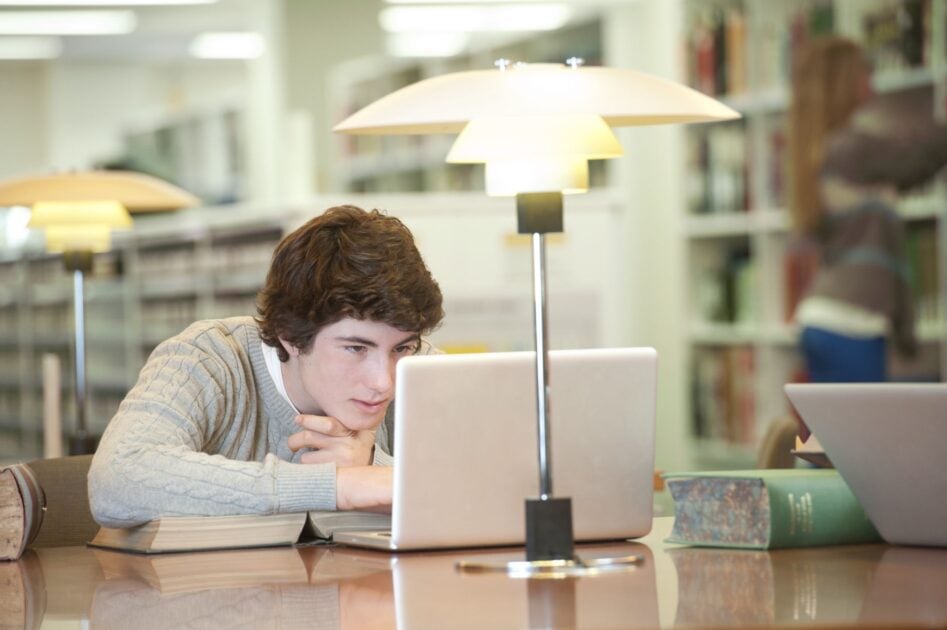My experience of living with a visual impairment
Robbie has developed skills to help him adjust

I have been in and out of hospitals more times than I can remember, having eye tests and trying to find ways to improve my ability to see. It was not that I am blind, but rather I can't see as much detail and as far as other people. It is what is known as a visual impairment.
My parents were told their son couldn’t play football or cycle a bike, and when words like that get thrown around it can set a fear about your progression in life. But my eye problems never stopped my parents believing I could be independent, and they were right.
In the classroom, I had to sit near the board and use magnifying tools supplied by the National Council for the Blind of Ireland (NCBI). Around the age of 10, I started learning touch-typing and braille. Skills that are invaluable if you work in a digital classroom or job. Braille is a handy thing to have in your skillset too, you never know when you might need it.
A laptop supplied by the Department of Education in my final year of primary school was a big help, given the delayed focus in my vision which often left me behind in finishing class work.
At the age of 14, I got contact lenses, improving peripheral vision, though I was still left with a very low-level of sight. Best of all, my glasses were no longer an object of fascination and people stopped asking, "Whoa! How do you see through those?"
Secondary school presented a new social challenge. The comfort zone I once had – with classmates who knew me – was gone. Introducing myself all over again, that was tough.
Having a laptop and an assistant to help me take notes caught people's attention at first, but a new device called an Opti Verso seemed to garner even more stares. It is a fight or flight moment, you can shy away and turn your back on the things that can help you succeed in life, or just shrug it off and give it time for normality to sink in. It is difficult and I won’t deny I did both those things. Self-confidence is a precious thing and when you do your best to have independence, never let anyone tell you or take away the things that help you carve that path.
For exams, The Department of Education issued specially enlarged exam papers for more practical subjects like maths, music and construction studies, while I could do others on a school computer. Subjects like construction studies had never been done on a scale like this before, so trial and error was involved, giving the teachers and examiners feedback to help the NCBI and department shape a paper for me and future students.
College was something to look forward to, using a laptop to enlarge and do work would attract less attention there. Unfortunately, only a few colleges in the Disability Access Route to Education (DARE) scheme offered media or journalism courses. Knowing the scheme would give me the chance to go on using Department of Education equipment, the search focused on finding a place at one of the colleges where DARE applied.
Unfortunately, it was unsuccessful but then I found Griffith College. I was eligible for their courses, but the DARE scheme had not been rolled out there yet, neither had the SUSI grant.
Left with a tough decision, I followed my hunger for journalism. Three years later and I have graduated. Using my own laptop for coursework, the college's disability office assisted me, and most lectures were available as PDFs.
Sometimes asked about accessing help for blind and visually impaired students, the truth is that not enough information is readily available. It is incredibly important to raise awareness about what is out there for young people who are blind or visually impaired, while writing about my own experience is more of a case study to give examples. Assistive technology like Ash Technologies' low-vision aids, products like Dragon Dictate and built-in accessibility software on our smartphones, prove there are always new ways to help improve the way we live.
Then there's the NCBI. "The NCBI works with students who are blind or vision impaired on a one-to-one basis to discover what difficulties the student might have and how they can be addressed," says spokesperson Fionnuala Murphy. "The services that students might want to avail themselves of include: mobility training, independent living skills, counselling, careers advice, library, and technology solutions."
For many students who are visually impaired or blind, the NCBI, AHEAD and DARE provide help to excel. Most colleges also have their own disability office too, to help academically and to support our independence.
Hearing stories from blind author and thrill-seeker Mark Pollock and visually impaired journalist Jason Kennedy from the Irish Independent about new medical procedures are inspiring and make me feel optimistic for the future.






